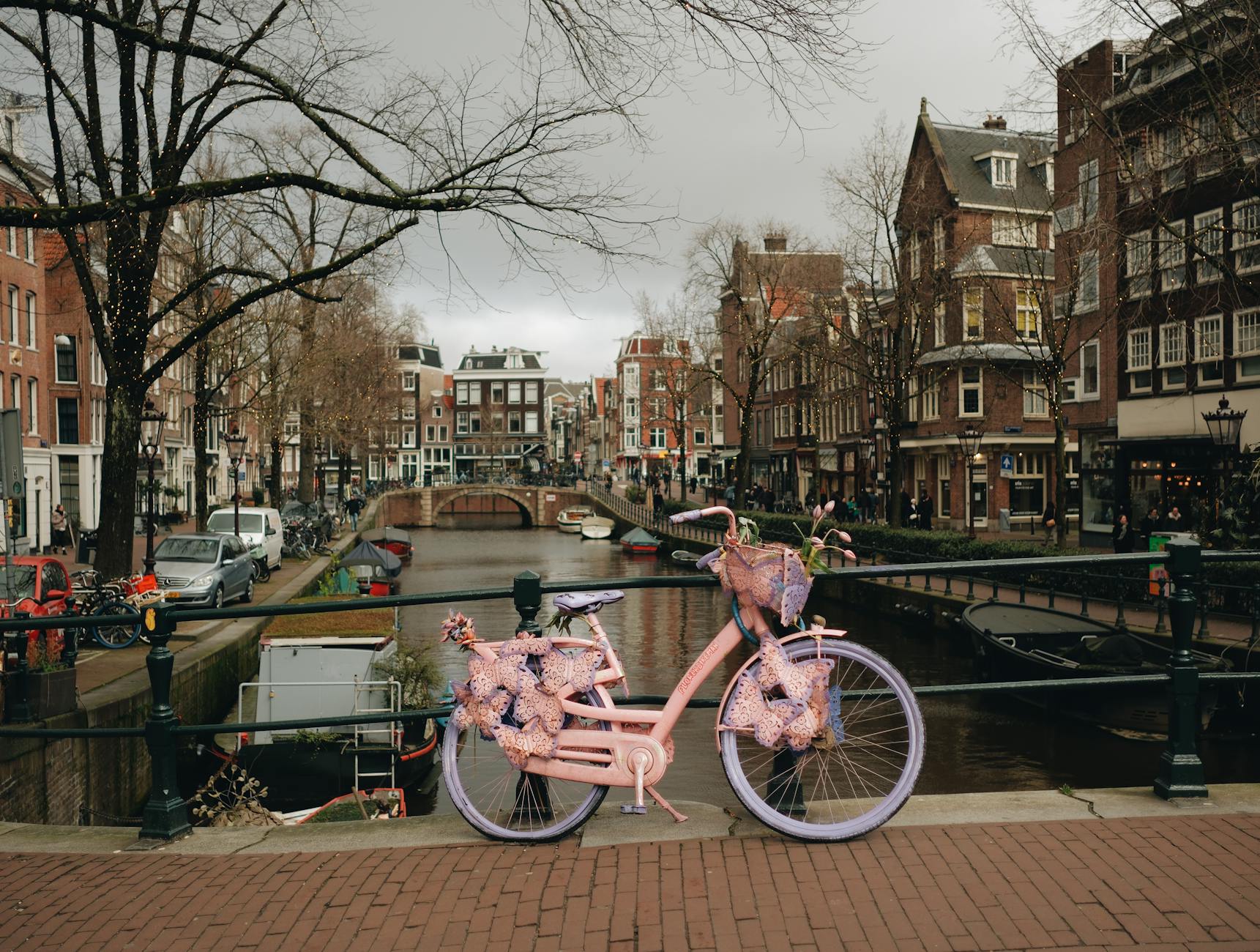How to Explore Australia While Supporting Local Wildlife Conservation

Planning Your Australian Adventure
Embarking on an eco-friendly adventure in Australia offers a rewarding chance to explore the continent's unique biodiversity while supporting sustainability. Kings Park and Botanic Garden in Perth is a testament to how natural and urban landscapes can coexist harmoniously. The park, with its indigenous flora, not only provides stunning views of the Perth skyline but also serves as a reminder of the importance of integrating conservation efforts into urban environments.
When planning your travels, consider destinations that prioritise wildlife conservation. Whether it’s exploring the diverse ecosystems on Central America tours or venturing to South Africa tours for a taste of Africa's enchanting wildlife, an awareness of preservation practices can enhance your experience. Cruises offer another perspective, such as a Galapagos cruise, where eco-conscious policies are crucial to preserving this fragile ecosystem.
To further minimise your ecological footprint, opt for group tours that promote carpooling or biking, and support accommodations that use renewable energy. It's equally important to research eco-certifications that ensure your money supports genuine efforts rather than falling into the trap of greenwashing. Aligning your travel choices with conservation goals allows for meaningful interactions with the environment and local communities.
As you explore these wildlife-rich areas, you'll find that incorporating sustainable practices into your journey fosters a deeper connection with the natural world around you.
Wildlife Conservation Tours
Participating in Guided Tours
Immersing yourself in wildlife conservation tours offers an enriching experience that aligns well with eco-friendly values. Guided tours like Kenya safari and Tanzania tours provide invaluable insights into wildlife conservation while ensuring minimal environmental impact. In my experience, tours that focus on educating travelers, like those offered at the Perth Zoo's conservation programs, help emphasise sustainable practices. Choosing guides who are knowledgeable about the local ecosystem ensures that your visit supports conservation efforts, benefiting the wildlife and potentially improving local community livelihoods as well.
Engaging with Local Conservation Projects
Getting involved in local conservation initiatives can have a profound impact on preserving ecosystems and empowering communities. In places with rich wildlife, such as those seen during an Africa safari, engaging with projects that work to protect endangered species showcases your commitment to sustainability. Look for tours that allocate a portion of your fees directly to conservation projects, ensuring that your travel supports long-term ecological balance.
Volunteering Opportunities
Volunteering can deepen your travel experience while allowing you to contribute directly to conservation efforts. Opportunities abound for those willing to lend their skills, from assisting in wildlife surveys to participating in habitat restoration activities. When considering volunteering, ensure opportunities align with genuine sustainability goals to avoid inadvertently supporting practices detrimental to conservation.
Engaging in these activities provides a holistic experience, merging your passion for travel with meaningful contributions to wildlife preservation.
Supporting Sustainable Practices
Selecting Eco-Responsible Accommodations
When planning travel, especially to destinations like South America, it’s important to choose accommodations committed to sustainability. Look for lodgings implementing green initiatives like using renewable energy sources, reducing waste, and supporting local communities. Many eco-friendly accommodations feature certifications from reputable environmental organizations, which can help assure that your stay supports conservation efforts. Not only do these choices minimise environmental impact, but they often enrich your experience by connecting you with local culture.
Dining and Shopping Sustainably
Selecting sustainable dining and shopping options can significantly impact local wildlife and ecosystems. Choose restaurants that prioritize organic and locally sourced ingredients, reducing the carbon footprint associated with food transportation. In South America tours, for instance, you'll find plenty of vendors offering eco-friendly products. Supporting these businesses ensures that tourism funds go back into the community, fostering a healthy local economy while preserving the environment.
Reducing Travel Impact
Reducing your environmental impact while traveling is crucial, especially on journeys like Arctic cruises. Consider using public transportation, biking, or walking instead of renting cars. Pack light to decrease the carbon emissions associated with air travel, and opt for reusable items like water bottles and shopping bags. These small changes can make a significant difference in protecting diverse ecosystems from climate change and pollution. The Perth Zoo’s conservation programs and the Western Australian Maritime Museum's exhibits offer great insights into the positive results of such responsible travel practices.
Interacting with Local Wildlife
Observing Ethical Wildlife Practices
When embarking on adventures like Galapagos Islands tours or African tours, it is crucial to engage with wildlife responsibly. Ethical wildlife interactions are not just about observing animals in their natural habitats but also respecting their space and ensuring minimal disruption. Always adhere to the guidelines provided by your tour operator or guide, and maintain a safe distance to avoid causing stress to the animals.
Learning From Indigenous Knowledge
Incorporating knowledge from Indigenous cultures can offer profound insights into sustainable and respectful wildlife interactions. Aboriginal communities in Australia have a rich history of coexisting with nature, offering valuable lessons that can guide eco-conscious travellers. Engaging with Indigenous guides or participating in cultural tours can enrich your understanding of conservation efforts and the significance they hold for local communities.
Photography Without Disturbance
Capturing memorable moments through photography is a highlight of any wildlife tour. To ensure your photography practices align with ethical standards, remember not to use flash when photographing animals. This practice can startle and disturb them. Furthermore, be patient and allow wildlife to move freely without crowding or disrupting their environment for the sake of a perfect shot. An honest interaction effortlessly results in pictures that reflect genuine moments, enriching your overall experience.
Overcoming Obstacles
Spotting Eco-Friendliness Fakes
Navigating the world of eco-tourism can sometimes be akin to walking through fog as we attempt to differentiate true eco-friendly hotels from those merely waving a greenwashed flag. As a tip, sustainable enterprises can be identified by their commitment to actual practices rather than vague promises. Look for certifications from bodies such as Eco Tourism Australia or evidence of significant contributions to local conservation. Visiting the [Western Australian Maritime Museum]'s sustainability exhibits can provide insights into what genuine eco-friendly initiatives look like.
Striking a Balance Between Tourism and Conservation
Balancing tourism with conservation goals is an ongoing challenge in Australia. As thoughtful travelers, aligning our itineraries with initiatives that protect our landscapes and creatures is crucial. Perth Zoo is a beacon of hope in this regard, blending visitor experience with active conservation. Engaging with these programs allows us to contribute to local projects while enjoying our travels.
Managing Expectations While Respectfully Exploring
Managing expectations is vital, particularly when interacting with wildlife. It's tempting to yearn for close encounters, but we must remember that the welfare of the animals always comes first. Learning from Indigenous knowledge can provide us with a deeper appreciation and understanding of our ecosystems. As a guide, the Perth Kings Park and Botanic Garden offers a sanctuary, blending tourism with a living exhibit of natural wonders, inviting us to explore without imposing.


